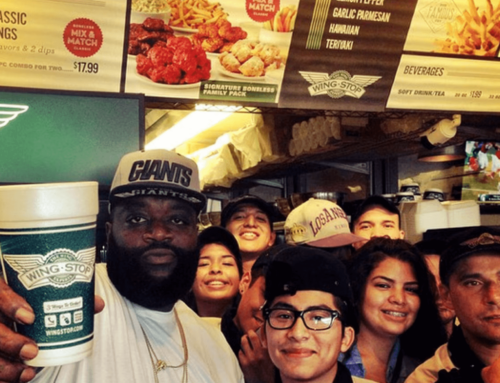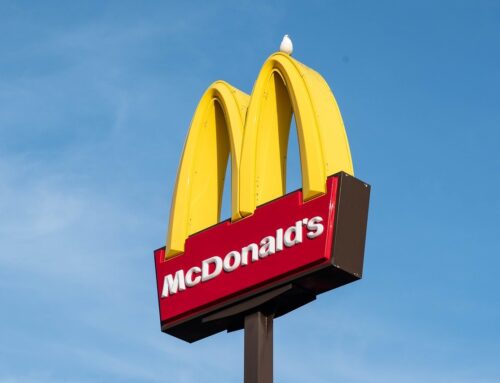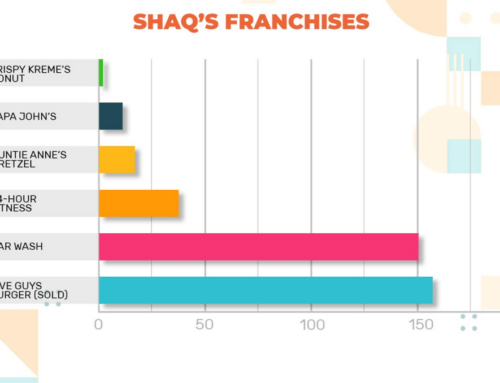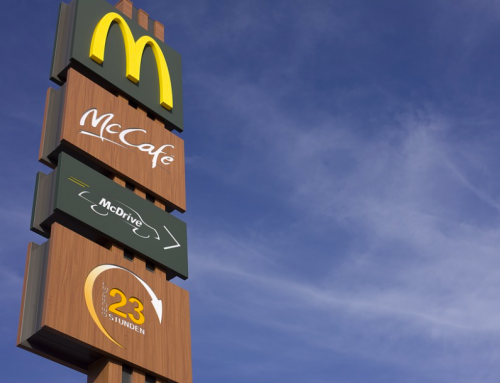Is Caribou Coffee franchise worth the investment? You can expect to invest between $249,000 to $1.15 million to open a Caribou Coffee shop of your own. On average, franchisees are investing $697,700 to open a store. But is this investment worth it considering the expected sales revenue? Let’s find out together.
Right now, 112 of the units are owned by franchise operators with the other 316 being corporate owned with 448 locations in the United States according to the Franchise Disclosure Document. But the company has added less than 10 new franchise owned locations over the past 24 months.
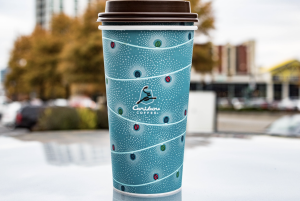
Caribou Coffee.
Are you thinking about opening a Caribou Coffee? I break down the detailed costs, including royalties, fees, and how much money you can realistically expect to make with this franchise. You can also take our 8-Minute franchise quiz to find the right coffee business for you.
Financial Requirements and Fees
Wondering about the fees associated with opening a Caribou Coffee franchise? Let us give you a guide list on what type of fees you’ll be facing if you decide to open one.
|
Type of Fee |
Low |
High |
| Initial Franchise Fee | $15,000 | $30,000 |
| Initial Inventory | $10,000 | $20,000 |
| Professional Fees | $2,000 | $15,000 |
| Initial Training Expenses | $2,000 | $6,000 |
| Business Licenses and Permits | $100 | $1,300 |
| Lease | Varies | |
| Architecture and Design Fees | $5,000 | $35,000 |
| Furniture, Fixtures & Equipment | $135,000 | $320,000 |
| Leasehold Improvements/Construction Costs | $45,000 | $510,000 |
| Signage | $5,000 | $50,000 |
| Additional Funds (3 months) | $17,000 | $94,000 |
| Technology Costs | $10,000 | $55,000 |
Financial Requirements
Caribou Coffee’s constant commitment to quality, creativity, and connection has helped them build and unique lodge coffee experience for nearly three decades. They provide franchise opportunities around the United States to eligible individuals who share their vision and want to deliver unforgettable encounters and artisan beverages to their community. Here’s a glimpse into the financial requirements you need to put up a Caribou Coffee franchise.
|
Requirement |
Fee |
| Liquid Capital | $3,000,000 |
| Net Worth | $3,000,000 |
| Total Investment | $446,100 to $732,300 |
| Franchise fee | $15,000 to $30,000 |
For cottage or cabin businesses (each of these are distinct building layouts / designs), the original franchise period is ten years, while for kiosk stores it is five years (10 years for kiosks located in airports). Renewal of the term is for two further five-year terms, subject to contractual limitations, by signing the then-current franchise agreement (which may contain terms and conditions fundamentally different from the original agreement).
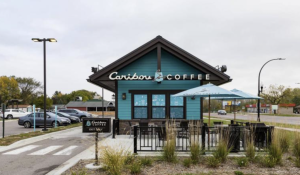
Caribou Coffee Cabin Design.
Franchise owners (or the Operating Investor or one of the assigned key personnel who may well assume the main responsibility for franchise operations and who the franchisor has initially authorized in writing) are required by the Franchise Agreement to dedicate their full time, energy, and concerted efforts to the effective functioning of the Franchised Business, as well as to accomplish the preliminary training program.
Franchisees (or their operating investor or qualified general manager) or an administrator who has finished the franchisor’s primary training program must oversee the franchised business at all instances. Only the items and services that the franchisor has authorized may be offered and sold by franchisees.
How Much Profit Does Caribou Coffee Franchisees Make Per Year?
Company revenue/sales per year: $300+ million in annual gross revenue.
Number of units: Caribou Coffee has 718 units globally. An estimated 449 locations are in the United States.
Annual Sales per Unit: Locations with a drive-thru earned $992,940 on average. Units with no drive-thru generated $511,213 in average sales.
Industry Average Profit Margin: The top 50 coffee shop franchises are responsible for 70% of the industry’s profit. Cafes have strong gross margins of up to 85%, but tiny coffee shops have an average operating income of only 2.5 percent of total sales.
Although the coffee industry’s average gross margin is high, tiny cafés’ average operating income, or profit, is typically low. This apparent inconsistency can be explained by the high cost of running expenses other than the cost of goods sold. The cost of coffee and cups, as well as the work that goes into making the food and drinks you offer, are all examples of direct costs. Rent, advertising, utilities, and supplies are among the other expenses that reduce profits to just 2.5 percent on average.
Related Reading: How Much Does it Cost to Buy a Starbucks Franchise?
These are direct costs, which means that their overall cost does not change depending on how much stuff you sell. As you create and sell more units, the cost per unit decreases since the total cost of these expenditures remains fairly steady. To put it another way, the coffee sector benefits greatly from economies of scale, which is the reason why the largest firms reap the majority of the profits.
Projected Annual Profit Per Store:

Caribou Coffee SWOT Analysis
Caribou Coffee, founded in Minnesota, sells gourmet coffee and espresso. Caribou’s first goal was to build a strong domestic client base in the Midwest, which they succeeded in doing.
Through franchises and some company-owned facilities, it has continued to expand throughout the country and into other territories. Caribou’s locations have shifted and downsized in recent years, but the brand remains committed to growth. Let’s evaluate the coffee chain’s current strengths and weaknesses.
Strengths
- Coffee of exceptional grade. Caribou Coffee has established itself as a formidable rival to other large coffee shops. You might be wondering how they were able to achieve this? Well, Caribou Coffee was founded on the grounds of superior-grade coffee and ingredients obtained through sustainable farming.
- Outstanding customer service. Caribou Coffee has empowered its employees to give the utmost customer service to their clientele which in turn has accorded them millions of loyal customers. Most of the time, people visit coffee shops not just for the coffee, but because of the consistent service.
- Effective branding. You know when you’ve stepped into a Caribou Coffee shop because of the distinct branding. A lot of the stores feel like you’ve entered a cozy log cabin with a fireplace and cozy leather chairs. Caribou has also developed a strong branding image and fostered their local markets through relationships with large non-profit groups and Byerly’s, a neighborhood grocery chain.

You can’t complete a to-do list without coffee.
- Large domestic fan base. As of February 2022, Caribou Coffee has 457 locations spread across 18 states and 176 cities making it one of the most popular coffee shop brands in the domestic market. Though it’s far-off Starbuck’s 15,000 domestic outlets, it is still one of the most recognized brands in the coffee shop industry.
- A pleasant place to work at. In Minnesota, Caribou Coffee is regarded as a top place to work. They offer excellent benefit packages that demonstrate the company’s commitment to its core values, resulting in loyal employees.
- Top 10 coffee chains in the country. Caribou is considered as one of the top coffee companies in the country thanks to its recognition as a Rainforest Alliance Certified coffee. It is a certification given to farms, forests, and companies that adhere to strict environmental and social guidelines.
Weaknesses
- Slow expansion. There’s no doubt that Caribou Coffee has done a brilliant job, however, there are a few areas where they could do better. One of these areas is expansion. Let’s state the obvious as mentioned earlier: Starbucks is everywhere, but Caribou Coffee isn’t. Caribou Coffee only added six units between 2019 and 2022. In 2018, seven of their locations went out of business.
Related Reading: 59 Global Coffee Industry Statistics and Consumption Trends
- Sluggish returns. Unfortunately, it has also been stated that a franchise store’s initial investment can take up to five years to pay off. As a result, franchises are only viable to those who can afford to operate without a net profit for half a decade or so.
Opportunities
- Globalization. This is one area that Caribou Coffee needs to explore. Though going global can be costly, it can be considered a great way for the brand to be recognized and gain more territories along the way. This has been the model used by the top companies in the country to expand by utilizing emerging markets to further their growth. With increased expansion into new territories, you can increase total revenue. According to the company’s website, Caribou Coffee has already expanded into 9 territories outside the United States.
- Marketing. Caribou Coffee promotes exceptional customer service, which results in great anecdotes from peers, as well as great experiences for people who chance across a Caribou Coffee while traveling. Every person who enters a site has the potential to contribute a narrative and an experience, effectively marketing the brand.
- Business acquisitions. Caribou Coffee also has the option to acquire additional businesses that will allow it to extend its brand and product offerings even further. Recently, Caribou Coffee has partnered with Einstein’s Bagels and Panera Bread to get more reach. Starbucks is an excellent example acquiring Ethos Water, Tazo, and Teavana just to name a few. Having some complementary offerings could help extend the business not only in terms of product but also in terms of geography.
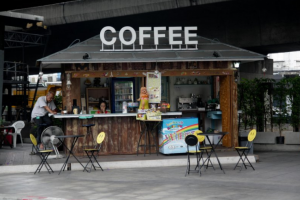
Outdoor Coffee Kiosk.
Threats
- Competition in and out of the industry. Not only does Caribou have to be conscious of the coffee chains, but there is also a growing trend encouraging people to dine, drink, and shop locally. In addition, a large number of fast-food businesses, such as McDonald’s, are increasingly dabbling in the specialty coffee sector. The corporation should keep an eye on the fierce competition in and outside of its industry.
- Customer preferences. In relation to customer preferences, information on the health effects of various coffee components such as caffeine might also deter consumers from purchasing a cup of coffee. In the marketplace, there are numerous external influences at play.
- Workforce rate. Reliable employees are hard to come by due to the nation-wide labor shortage. There are a variety of catalysts for this shortage, including retirement of boomers, lack of childcare, and health concerns. Without a robust number of employees, coffee shops will struggle to find employees willing to fill every shift.
Facts About Caribou Coffee
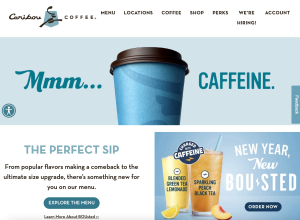
Official website of Caribou Coffee.
Caribou Coffee Company is a coffeehouse company based in the United States. Caribou Coffee was established in 1992 in Edina, Minnesota. The company has 603 sites globally as of May 2015. Caribou Coffee started off as a coffee store for office employees, open only Monday through Friday. When his original downtown lease was canceled, unfortunately, founder John Puckett was forced to relocate to the suburbs.
Caribou’s original concept was just a five-day-a-week routine focused on downtown office employees, similar to what has been successful in Boston. Puckett acquired a deal for the very first space in the Pillsbury Center, which is a huge office block.
The building’s owner, on the other hand, opted not to sign the paperwork shortly after since one of the property’s retail tenants had exclusive rights to sell coffee on the premises and had threatened legal action against him. As a result, the store’s funding fell through since it was reliant on that particular location. Puckett chose to start looking for a spot in the suburbs, and the first Caribou Coffee shop opened in December 1992 in Edina, Minnesota, a suburb of Minneapolis.
IPO Launch and Subsequent Sale
Caribou Coffee went public on September 29, 2005, under the leadership of CEO Michael Coles, with the trading code CBOU. In 2012, German private equity firm JAB Holding purchased Caribou Coffee for $340 million, bringing the franchise private. JAB Holding owns, among other things, Krispy Kreme, JDE, Panera Bread, Pret A Manger, and Peet’s Coffee as of 2021.
After the merger, it was announced that Caribou coffee shall continue to run as a separate business with its own branding, leadership team, and competitive positioning, with headquarters in Minneapolis, Minnesota.
Attention Founders: Join our Community of 45,000+ Subscribers to Get a New Food Business Case Study Delivered Each Week w/ Revenue Numbers
Caribou Coffee revealed in May 2013 that it would shut down 80 stores in Washington, D.C., Maryland, Ohio, Virginia, Michigan, Eastern Wisconsin, Illinois, Georgia, and Pennsylvania, with 88 others being transitioned to Peet’s Coffee & Tea in those regions between 2013 and 2014. Caribou outlets in Minnesota, North Dakota, Wisconsin, California, South Dakota, Colorado, Indiana, Georgia, Iowa, Oklahoma, Illinois, North Carolina, Missouri, Kansas, Wyoming, Ohio, Michigan, Nebraska, and Virginia, as well as ten foreign markets, would remain open.
Caribou started their merger with Panera Bread and Einstein Bros. Bagels to form Panera Brands on August 5, 2021. Panera Brands filed a registration for an initial public offering of stock on Nov. 8, 2021, after four years in private hands.
Is Caribou Coffee Worth the Cost to Invest?

Connect with coffee.
Kimberly and John Puckett, business owners, founded the company in 1992. Surprisingly, the two started their business after going on a hiking trip through Alaska. Caribou Coffee was promoted as a refuge for customers, a place where they could escape the stresses of daily life. The name was inspired by an experience the Pucketts had on their trip: while descending down the mountain, they spotted a wild caribou, which gave birth to the idea.
Over time, the brand grew to become a well-known name in the business. The Pucketts finally sold the business, but not before assuring that it was a success. The brand’s hard-won success is still evident today. All of the coffee beans are roasted in Brooklyn Center, Minnesota, which is an interesting fact. Caribou Coffee is also committed to adapting to the changing times.
Related Reading: How Much Does it Cost to Open an INS Market Franchise?
In this case, you may have to balance the advantages and disadvantages of putting up a Caribou Coffee franchise as it can be observed in the SWOT analysis. While Caribou Coffee has a great opportunity to expand its territories in and out of the country, there seem to be some bothersome factors in setting up and operating one.
One glaring argument is the slow returns which you’ll have to wait for about five years to expect anything in return for your investment. Though we are not entering this kind of business expecting a quick buck in return, in an industry such as this, five years can be considered a long time. Sluggish growth is also a concern, as there may not be enough territories to fit in where there is already a Starbucks nearby.
Then again, if you have the financial capacity and determination to put up a coffee chain franchise like Caribou Coffee, then go for it. This is a beloved coffee chain in many parts of the Midwest and consumers will appreciate you opening the doors.

